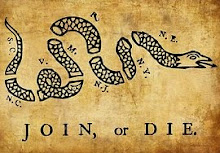What If Obama Signs the UN Arms Trade Treaty?
by Fred DeRuvo of
Freedom Outpost
The
UN Arms Treaty is again, rising to the surface. The latest version was finalized this past March 2013.
It needs to be clearly understood that the United States does not need the UN. So one might reasonably ask, what is the purpose of America signing any of the UN-sponsored treaties?
When any country signs onto a UN treaty, that country effectively gives up a some sovereignty by placing itself under the auspices of the United Nations. In effect then, certain laws of a particular country could eventually become infringed or entirely canceled out because of that position.
Even if Obama signs this treaty, it would have to be ratified by the Senate. There is a good possibility that this would fail ratification attempts. I doubt that this would mean the Obama administration would give up though. 2014 is coming.
The
Arms Trade Treaty is thirteen pages (28 articles) detailing the responsibilities of those countries that sign onto the treaty. Everyone should download a copy and read it thoroughly.
The stated purpose of the treaty is as follows:
Establish the highest possible common international standards for regulating or improving the regulation of the international trade in conventional arms;
Prevent and eradicate the illicit trade in conventional arms and prevent their diversion;
Like everything else done by the UN, the reasons for the treaty is to contribute to peace and reduce human suffering. For the record, the UN has never done anything that has created peace in areas of the world that have been in conflict. It has also routinely turned a blind eye to human suffering throughout the world and does so even now.
While the treaty recognizes the rights of the individual “states” (countries signing on) to continue to do whatever is needed for the protection of their own borders and people, the treaty attempts to curtail illegal arms sales. Among other things, each state can remove themselves from the treaty whenever they wish and becomes effective 90 days after giving written notice. Otherwise, the treaty lasts forever.
I’m not a lawyer so I cannot comment on every jot and tittle. However, the treaty reads in a fairly straight forward manner.
There are only two areas where I see potential problems. The first one, under Article 2, point h concerns, “
Small arms and light weapons.” There is no specific definition of “
small arms and light weapons” anywhere in the text that I could find. However, one paragraph states, “
Noting the contribution made by the United Nations Programme of Action to Prevent, Combat and Eradicate the Illicit Trade in Small Arms and Light Weapons in All Its Aspects, as well as the Protocol against the Illicit Manufacturing of and Trafficking in Firearms, Their Parts and Components and Ammunition.”
The treaty outlines how each state will essentially create an elaborate “
national control system” that catalogs all ammunition/munitions as well as parts/components related to items in Article 2. Moreover, the treaty encourages this same approach with all conventional weaponry for each state, though the term “
conventional” is also not defined. Article 12 also references national records.
The treaty will create larger government requiring millions in taxpayer dollars for the system and staff. The government will grow another “arm” essentially.
Could this become a national database extending to weapons held by private, law-abiding citizens? Possibly. Article 10 may hint at this. “Each State Party shall take measures, pursuant to its national laws, to regulate brokering taking place under its jurisdiction for conventional arms covered under Article 2 (1). Such measures may include requiring brokers to register or obtain written authorization before engaging in brokering.” It’s unclear.
The other problem is how changes are adopted to the treaty after a state becomes part of the treaty. This is highlighted in Article 20. Once the treaty takes effect, no changes can occur for six years. After that, changes could be made every three years. Once an individual states sign onto the treaty, that state’s governing body is out of the picture, permanently. In other words, though the US Senate would have to originally ratify the treaty for it to become effective for the United States, after that, any amendments would be done by vote of the member states, not their governing bodies.
Six years from becoming effective, should member states pass an amendment making private gun possession illegal for all member states’ citizens, that would become law for America. America’s 2nd Amendment would be infringed/eradicated by this treaty. The left says this can’t happen, but what’s to stop it?"





